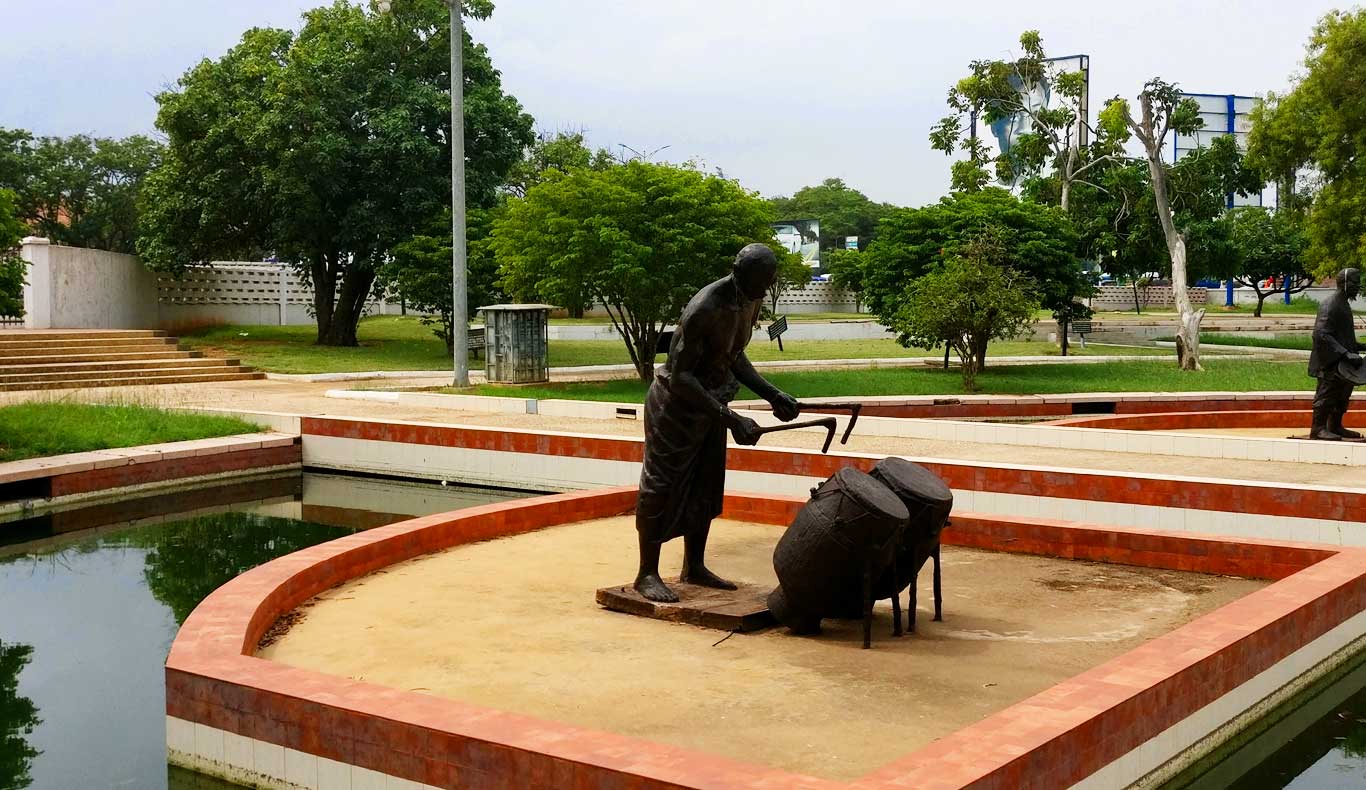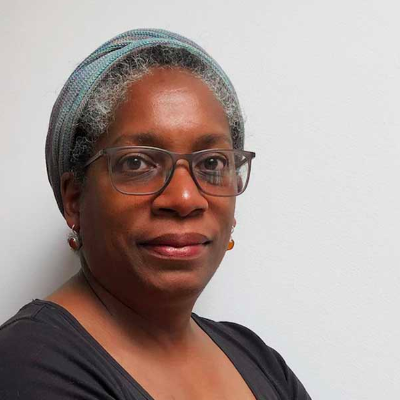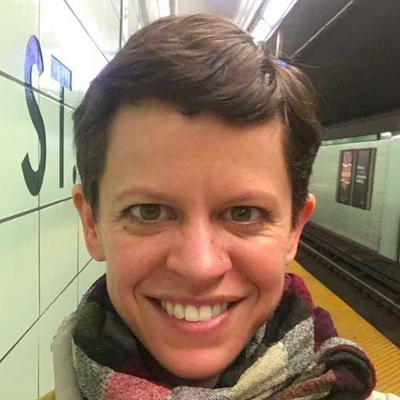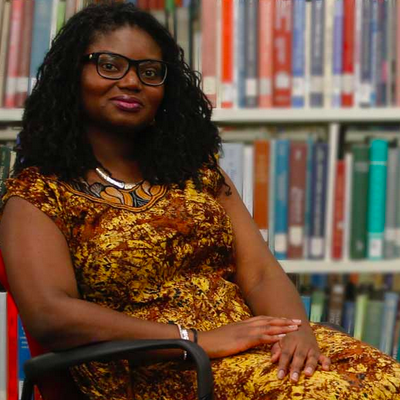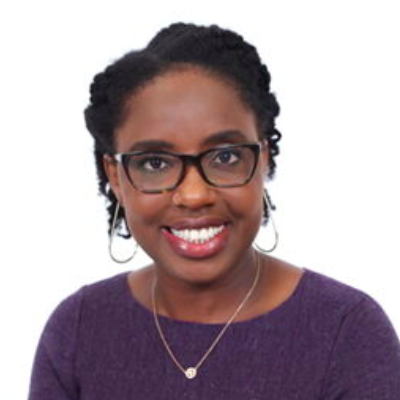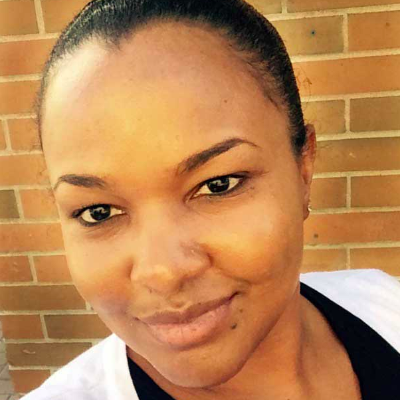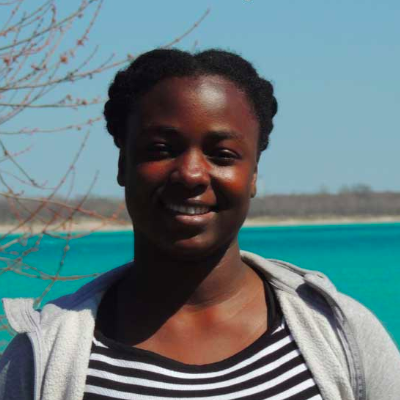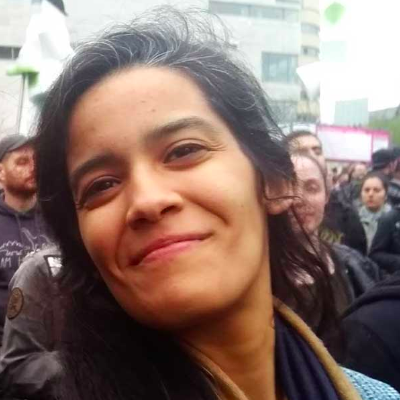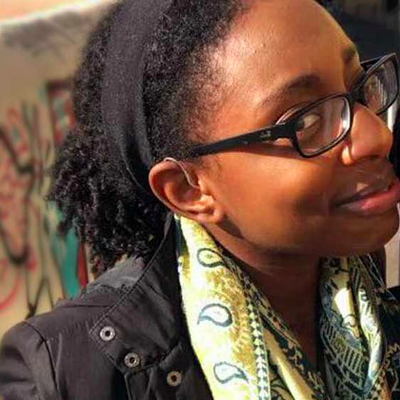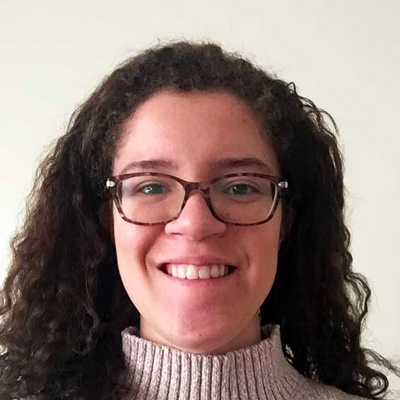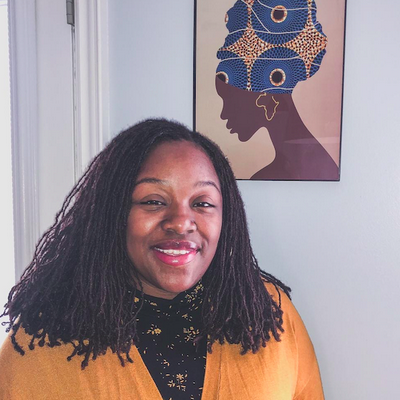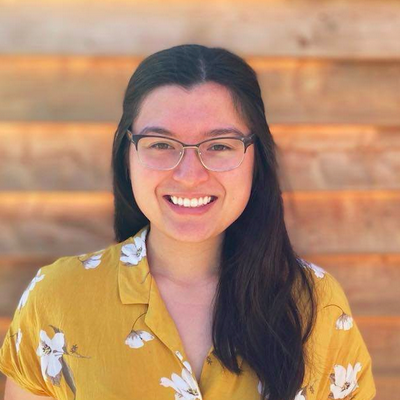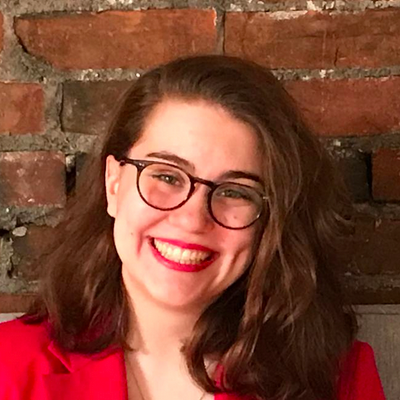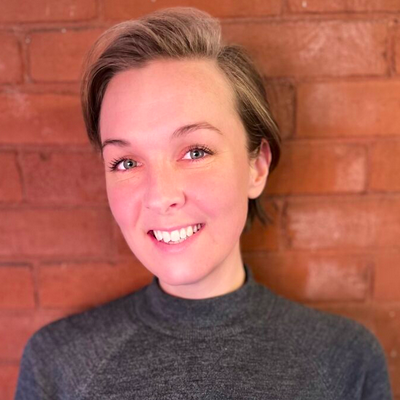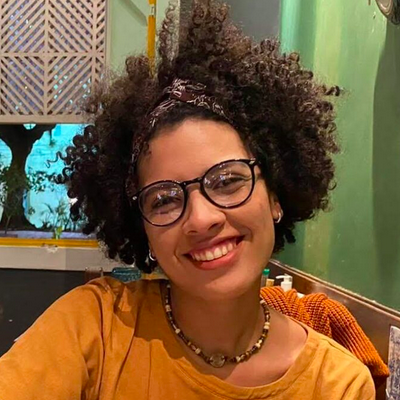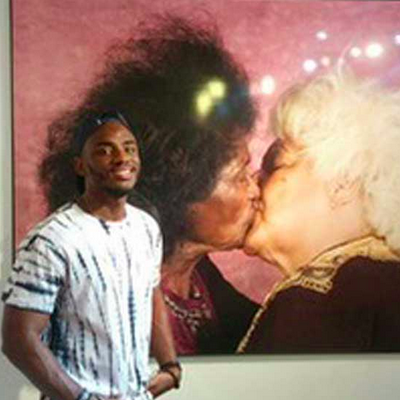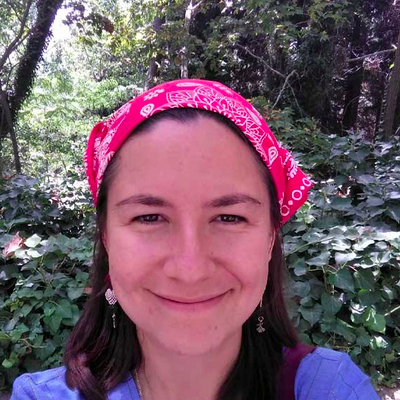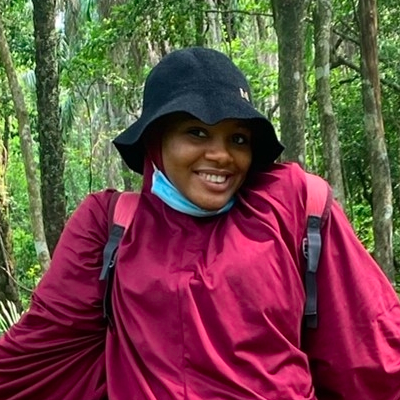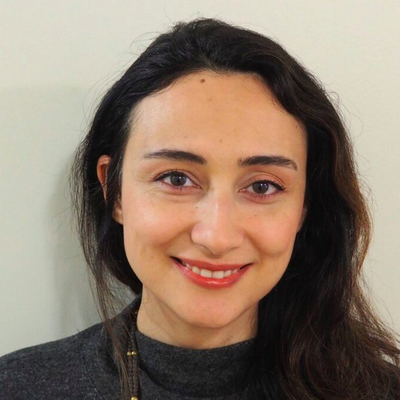GEELs, Global Economies and Everyday Lives, is a creative and critical community of scholars at Queen’s University interested in issues related to social reproduction, racial capitalism, cities, diaspora, and social transformation in spaces beyond the “West.” We draw on feminist, critical race, decolonial, and queer theories and methodologies to advance feminist political economy perspectives in geography and inter-related disciplines. The lab is a collaborative environment where we share ideas, test new research methods, share and debate scholarly resources, mobilize and disseminate knowledge, and organize events.
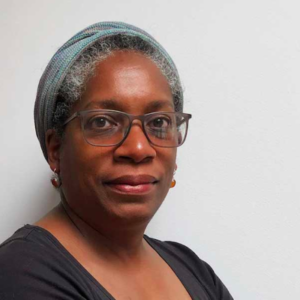
Ph.D. in Geography, McGill University , Canada (1996)
MSc. In Urban and Regional Planning Studies, London School of Economics, United Kingdom (1989)
B.A. Economics and Geography, University of the West Indies, Jamaica (1986).
Beverley Mullings
Professor, Geography & Planning
mullings@queensu.ca
What I Work On
Broadly speaking, I am keenly interested how neoliberal rationalities across the global South are changing local geometries of power. This is reflected in my ongoing interest in exploring how labour landscapes in the Caribbean are being restructured in response to external shifts and shocks in the global economy, as well as, by the everyday struggles and negotiations enacted by people in their bid to sustain and socially reproduce themselves. At the moment I am engaged in three main areas of research – the first, on intersections between racial capitalism and social reproduction within labour geographies; the second, narratives of middle-classness and the emergence of diaspora as a site of social transformation within neoliberal modes of governance and the third on questions of Mental Health and wellness in the Academy.
How I Work
My research is grounded in feminist political economy. I draw on historical materialist and genealogical methodologies to guide my work, and qualitative methods to execute them. I am particularly interested in extending the boundaries of Feminist Political Economy through greater theoretical engagement with questions of decoloniality; racism; social reproduction and transnational feminism. Feminist theories with their attentiveness to power and everyday life help me to be reflexive, and combined with critical race theory, both make me attentive to the intersecting nature of geometries of power.
Why I Work On This
I have a deep sense of accountability to the far-flung and marginalized communities of which I am a part. I am motivated by a sense of outrage and injustice at the patterns of inequality that dehumanize and construct so many as disposable relics of the present. As the child of West Indian migrants, and now as an immigrant myself I find myself drawn to the potentialities for innovation, reativity and change that transnational encounters, reflection and communities generate.
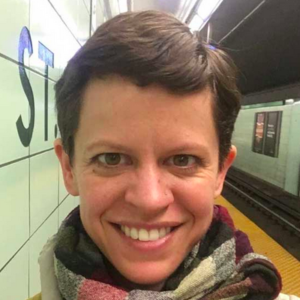
PhD in Geography (University of British Columbia)
MA in Kinesiology and Health Studies (Queen’s University)
BA/BPHE (Queen’s University)
Carolyn Prouse
Assistant Professor, Geography & Planning
carolyn.prouse@queensu.ca
Research Interests
My research explores how diverse urban communities are marginalized by economic and bioeconomic markets, and how people transform themselves, and their communities, through grass-roots and social reproductive practices. I currently focus on the social and economic dynamics of urban infrastructural development, broadly construed. I ask questions such as: How do low-income, racialized communities grapple with state-led slum upgrading efforts in Brazilian favelas? How does FIFA negotiate with local authorities over the locations of World Cup stadiums? How do neocolonial and scientific infrastructures articulate to force some people into precarious forms of clinical labour? And how does non-valued work – such as breastfeeding – become distributed through urban infrastructures of infant feeding? I pursue questions such as these in North America, South America, and Africa. For details on my specific research projects, please see: http://carolynprouse.com/#research
How I Work
As a feminist, decolonial urbanist I work at the intersection of feminist geographies, critical race theory, political economy, urban political ecology, and postcolonial/decolonial theory. My methods include interviewing, ethnography, observant participation, and focus groups.
Biography
I grew up in North York (Tkaronto) and have spent many years on unceded Coast Salish Territory (Vancouver). Alongside my research, I am tremendously committed to teaching, urging students to engage with thinkers outside the ‘canon’ and to think through the colonial and neocolonial processes that shape our world. I currently live in Kingston (the traditional territory of Haudenosaunee and Anishinaabe) where, outside of work, I can often be found fumbling around on the fiddle, reading novels, or looking for local pick-up soccer games.
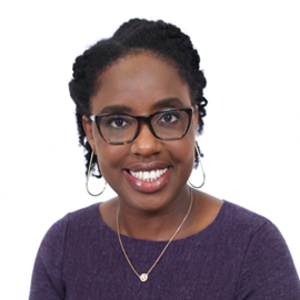
PhD York University
MES York University
BA University of the West Indies, Mona Campus Jamaica
Kesha Fevrier
Assistant Professor, Geography & Planning
kesha.fevrier@queensu.ca
Research Interests
My immediate research interest remains focused on unpacking the idea of waste-as-commodity and exploring the ability of waste in commodity-form to transform local geographies as it traverses geo-political borders. In paying particular attention to the tensions, conflicts and the socio-ecological, and spatial transformations produced, and the livelihoods shaped as a result of the circulation of things, my research offers critical insights into global material flows and the connections, ruptures and (dis)articulations that define such flows across space, creating in its wake distinct, uneven, racial/ethnic geographies and landscapes.
How I Work
My work is grounded in black, and transnational political ecologies, and the growing field of discard studies. Because my research happens in and with community, I employ qualitative methodologies which includes ethnography, case study, interviews, and participant observation.
Biography
I was born and raised in the beautiful island of Saint Lucia, fondly referred to as the Helen of the West. As an immigrant to Canada, I inhabit two spaces, Toronto which has been home for more than a decade now, and Saint Lucia which is always home. My immigrant status in Canada and being in and of the diaspora informs my research perspective – the global as local.
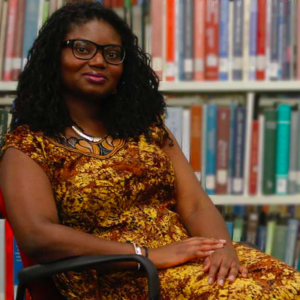
Photo credit: Akintude Akinyele
BA(Hons), MPA, PhD
Grace Adeniyi-Ogunyankin
Assistant Professor, Geography & Planning
grace.adeniyiogunyankin@queensu.ca
Research Interests
My current research explores the relationship between youth, labour and neoliberal urban transformation in Ibadan and Lagos, Nigeria. I am interested in the role that the intersections of neoliberal urban change, global consumer culture and labour play in (re)configuring youth identity and providing opportunities for youth to orientate themselves towards the future.
Through my investigation of the changing forms of labour in the new economy of Nigerian cities, I theorize on how the forms of labour cultivated and performed in African cities are also affected by coloniality, postcolonial politics of identity and racial capitalism.
My research methods include: ethnography, interviews, focus group, diary methods (written, photo and audio) and digital storytelling.
Biography
As a Nigerian-Canadian, issues concerning identity, race, capitalism and coloniality drive my work. These issues are personal in the sense that they largely explain why my family and I moved to Canada in the early 1990s (e.g., structural adjustment/socio-political legacies of colonialism) and also enable me to understand how I participate in settler colonialism.
In addition to academia, I love to travel, cook, read novels and write poetry/short stories. I used to act in dramas and write plays (maybe I’ll get started again soon!). In the meantime, I occasionally host book club meetings which are often quite theatrical. I also aspire to be a spoken word artist and/or stand-up comedian!
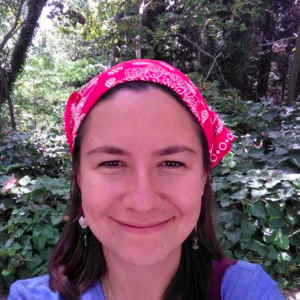
Master of Science, Middle East Technical University, Urban Policy Planning and Local Governments
Bachelor of Science, Middle East Technical University, Political Science and Public Administration
Hilal Kara
PhD Candidate, Geography & Planning
hilal.kara@queensu.ca
Research Interests
My research interests lie at the intersections of social reproductive labour, work and employment, urbanization, and spatial mobility. The question of what constitutes social and spatial exclusion drives my research interests. In my recent work, I am looking into the ways that female young graduates experience precarious living and working conditions in Turkey, where economic insecurity and political instability have long been transforming young lives. In this work, I seek to understand how female young lives experience everyday spatiality and temporality of precarity through negotiating to their precarious conditions vis-à-vis patriarchal state and societal norms in the social reproduction and production spaces. Prior to this work, based on ethnographic fieldwork in Turkey, I examined how the cities that are designed within the neoliberal logic are affecting everyday spatial and social mobility patterns of female domestic workers. In this work, I looked at how mobile encounters in the work-home trips emerged as a potential for catalyzing ‘invisible’ resistance strategies.
Biography
I was born and raised up to a family who has a migration story just like many in Turkey. My elder family members migrated from different countries in the Balkan region to Turkey in the 1940s, and my nuclear family has moved a lot across Turkey. I was surrounded by these mobility stories that makes me think about ‘what makes a place home for a person’ and that shapes my entire non-academic life. In order to find out potential ‘answers’ to this question, I write short stories based on visual and oral materials I’ve collected over the years.
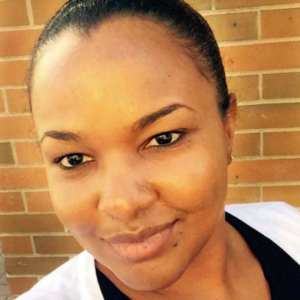
Bachelor of Science, Caldwell University (2006)
Master of Science, University of Calgary (2016)
Kasmine D. Forbes
PhD Candidate, Geography & Planning
15kdf1@queensu.ca
What I Work On
My research aims to explore the challenges and transformative possibilities of food sovereignty in the Caribbean, and the role that its diaspora can play in the promotion of sustainable alternatives.
How I Work
Drawing on feminist methodologies, I use qualitative phenomenology to query different perspectives on the state of food sovereignty in the face of evolving neoliberal food regimes.
Why I Work On This
Food sovereignty in the Caribbean is often mobilized by national, regional, and international calls to increase the scales of domestic food production in the region. State efforts to embrace the broader political and ideological principles of food sovereignty, however, tend to be dominated by the growing importance of neoliberal approaches to food security in global policy-making circles. Many Caribbean scholars have written in-depth about the ways that the neo-liberalization of food and agriculture undermines the ability for people and states to democratically decide on their own trade and agricultural policies. Yet, few have critiqued the spatial processes and power relations behind the rise of neoliberal food regimes in the region to identify sustainable alternatives. My research, therefore, aims to enhance this work by exploring diasporic pathways to food sovereignty.
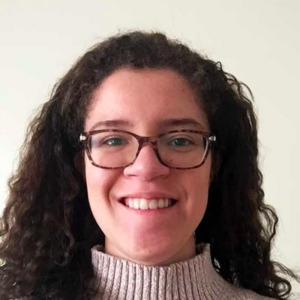
Bachelor of Education (Primary/Junior)
Bachelor of Arts Honours (Geography & Music)
Lizzy Hinds-Hueglin
Masters Student, Geography & Planning
12eahh@queensu.ca
Research Interests
I am interested in researching the existence of cultural landscapes and the processes/politics of cultural heritage. My focus surrounds the analysis of heritage landscapes and the omission of historical narratives relating to the African Diaspora within Kingston, Ontario. I aim to critically understand the power dynamics associated with the construction of hegemonic narratives that represent selective and distorted histories.
Biography
I have spent the majority of my life in Kingston. Ontario, where I was born and raised. I identify as a biracial individual of both African-Caribbean and German-Canadian descent. My father is of European descent and traces his ancestry back to early settlers who immigrated to Canada. My mother is a first generation Canadian of Afro-Caribbean descent originally from the island of Barbados.
My dual heritage has significantly influenced my personal interests in addition to my academic pursuits. During my free time, I enjoy exploring Caribbean genealogy connected to my family ancestry in Barbados and Grenada. I aspire to one day travel to the Caribbean and experience the islands my ancestor’s once inhabited while also visiting all the local archives. As a future project to one day pursue, I would like to also study the presence of colonial landscapes in Barbados along with the history of settler colonialism and African Slavery.
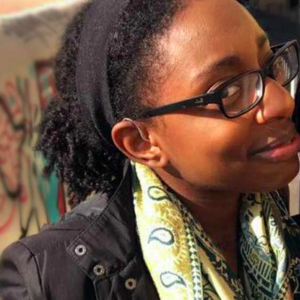
Master of Arts International Politics and Human Rights, City, University of London, 2018
Bachelor of Journalism (minor in economics), Ryerson University, 2015
Shannon Clarke
PhD Candidate, Geography & Planning
18sac15@queensu.ca
Research Interests
My work considers the activist history of Black Caribbean people in Canada, with a focus on the gendered experiences of migration and political subjectivity. I’m particularly interested in how Black women organize and resist sociospatial injustice from within white supremacist, patriarchal and capitalist institutions. I hope to ask questions that challenge prevailing political and social hierarchies and assumptions.
I also consider the role of colonialism and capitalist imperialism in all my analysis, examining the movement of ideas as well as people. This includes questioning how these systems – past and present – determine how Black women from the Caribbean live in and experience different space. At the same time, I aim to examine how they shape them, especially through their labour and activism.
I’m a qualitative researcher. My primary methodologies include phenomenological interviewing and oral histories, as well as archival research and discourse analysis. I aim to approach all of this through frameworks that centre anti-oppression.
Biography
My research has given me the opportunity to think a lot about my relationship to the places where I live(d) and study. While my sense of home and belonging is constantly shifting, I locate myself in Canada (Toronto) and the Caribbean (Barbados). When not reading about national identity and migration, I’m watching an excessive amount of tennis – which conveniently incorporates both.
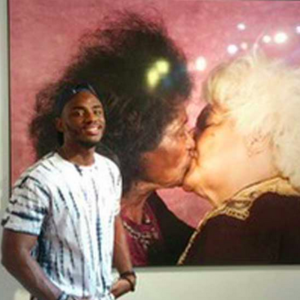
MA in Global Developments Studies, Queen’s University (2019)
BA in Geography at U of Havana (2017)
Dairon Luis Morejon Perez
PhD Candidate, Geography & Planning
17dlmp@queensu.ca
Research Interests
As a geographer, I have long been interested in the study of human migration and the processes that come along with the movement of people across borders. I have been particularly interested in how diaspora groups are formed, and the ways in which second-generation migrants integrate into the new social contexts while being part of diasporic families, households or communities. For my current research project, I examine how second-generation Cuban migrants create spaces of belonging and citizenship in the US and Canada. This research looks at the role of Afro Cuban spiritual practices in the maintenance and/or formation of a Cuban identity in the diaspora.
I am an international student from Cuba captivated by the study of human and urban geography or simply put, people and cities in relationship with the geographic space. Always interested in debates about race, politics, popular culture and political economy, most times interested in debates about all of them together. As a proudly “global south” person (or native, citizen, member, or whatever definition is wrongly use), I am enthusiastic about bringing different perspectives and experiences to the conversations already happening in this part of the world (also known as the global north).
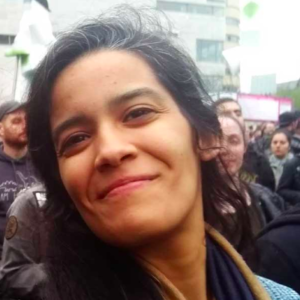
Master’s degree, Comparative Literature, Université de Montréal
Bachelor’s degree, Comparative Literature, Universidad de Puerto Rico, Rio Piedras
Nathalia Santos Ocasio
PhD Candidate, Geography & Planning
16nso@queensu.ca
Research Interests
My research looks at the afterlives of Chilean arpilleras (political tapestries) from a feminist political economy lens to understand their role in the current landscapes of social reproduction and urban politics. More broadly, I am interested in the transformative potential of creative art practices.
Growing-up in Puerto Rico, my life has been seriously impacted by colonization and US imperialism. However, thanks to the quietly resisting acts of my family in the countryside of Gurabo and the critical culture of the University of Puerto Rico, Rio Piedras campus, I have been able to question my position in the world, the economic interests maintained by US interventionism and the alternative wolds that coexist in spite all, providing the blueprints for a more just society. Cultural production and art have been central in this process.
Aside from my work at the university, I am interested in Puerto Rican politics, textile practices and the mechanics of language.
Para mi investigación de doctorado, estudio arpilleras chilenas (tapices políticos) a través de un lente tanto feminista como materialista para entender su rol en el paisaje reproductivo y político urbano actual. De manera general, estoy interesada en el potencial político de las prácticas artístico-creativas.
Como puertorriqueña, mi vida ha estado críticamente impactada por la colonización y el imperialismo estadounidense. Sin embargo, gracias a los actos silenciosos de resistencia de mi familia en el campo de Gurabo y a la cultura crítica del recinto de Rio Piedras de la Universidad de Puerto Rico, he logrado cuestionar mi lugar en el mundo, los intereses económicos defendidos por el intervencionismo de los Estados Unidos y los mundos alternativos que coexisten, a pesar de todo, brindándonos un mapa para un mundo más justo. La producción cultural y el arte han sido centrales en este proceso.
Además de mi trabajo en la universidad, tengo un gran interés por los desarrollos políticos en Puerto Rico, el arte textil y las mecánicas del lenguaje.
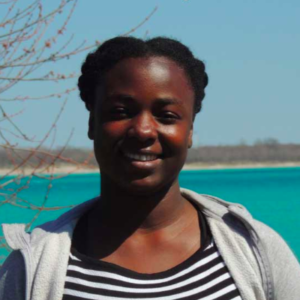
Master’s degree, School of Environmental Studies, Queen’s University
Master’s degree, Institute of Sustainability, United Nations University for the Advanced study of Sustainability (UNU-IAS)
Bachelor’s degree, Department of Geography and Rural Development, Kwame Nkrumah University of Science and Technology
Priscillia Tooloo Apronti
PhD Candidate, Geography & Planning
15pta@queensu.ca
Research Interests
I am a PhD candidate in the Department of Geography and Planning at Queen’s University. My current research explores how clean energy policies affect the everyday life of the poor, particularly women. Specifically, my work uses a feminist political economy lens to understand how different political and economic interests negotiated in renewable energy projects transform and create governable spaces that impacts economic and energy poverty situations in rural and remote communities in Ghana. My other research activities broadly cover issues of corporate social responsibility in the extractive industry, disaster risk reduction and educations and the environment and health impacts of natural resource extraction.
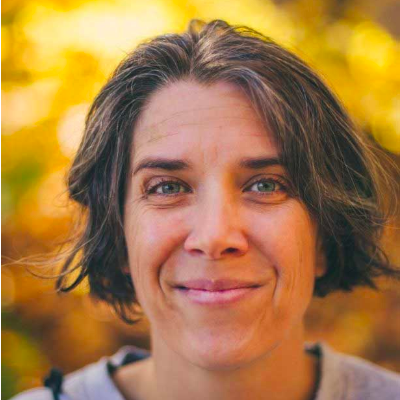
BA Journalism, University of Johannesburg (2009)
BA (Hons) Political Science, University of Johannesburg (2010)
MSc Social Studies of Gender majoring in Political Science, Lund University (2013)
MA Tourism and Management, University of Johannesburg (2015)
Claudia Hirtenfelder
PhD Candidate, Geography & Planning
17ch38@queensu.ca
Research Interests
My research is primarily focused on the relationships between humans, animals and cities. I am interested in both the historical and geographical ways in which these relationships manifest and how they are entangled across a variety of axes of social difference and inequality. My main PhD Research is focused on how cows came to disappear from two cities, namely Kingston, Canada and Cape Town, South Africa. By unpacking how cows came to problematized, I hope to better understand how urbanization itself is a process of colonial-capitalist, multi-species relations. These relations have historically and geographically been shaped through a variety of relations of exclusion and inclusion which are complicated by socially located axes of difference, including those of race, gender, class, and colonialism.
Biography
I grew up in South Africa, a country that remains deeply divided by its history of racism and one that is marked by its high levels of gender based violence. Growing up in this context, I developed a keen interest in issues of justice and equality. I followed these interests through my studies in Journalism and Political Science, later refining them with a degree in the Social Studies of Gender from Lund University in Sweden. This degree taught me to question the everyday and to ask how seeming banal aspects of our lives come to be taken for granted. I eventually turned my attention to the food I eat and found that there was a lot more to be considered ethically, environmentally, and socially with our relationships with animals – and importantly, to question what I meant by ‘our’, thus shining attention on the taken for granted category of human, which has historically been used to inflict a variety of injustices between humans too.
In addition to studying, I am an advocate for international students and I am the host of two podcasts (Beyond Canada and The Animal Turn). I also love cycle-touring and going on long walks with my husband (Oliver) and dog (Linus).
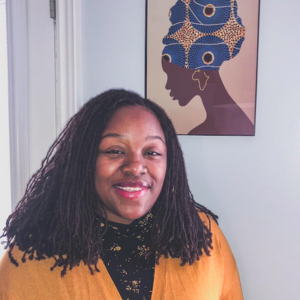
Master of Arts in Slavery Studies, University of Hull, 2012
Bachelor of Arts (Honours), Double major in Caribbean Studies and History, University of Toronto, 2009
Channon Oyeniran
PhD Candidate, Geography & Planning
20cao@queensu.ca
Research Interests
As a historian and new geographer, I have long been interested in the movement, migration, identity and experience of the Black African diaspora and its ties to place and space. Pertinent questions that I think about in relation to the Black African diaspora experience, include but are not limited to questions such as: Who is the Black African diaspora? How does the Black African diaspora identify themselves? How does the Black African diaspora identify with other people of African descent globally? Despite which geographical location, what are the commonalities that are shared between the Black African diaspora?
My focus is how the Black African diaspora in various locations have created and/or maintain(ed) their identity, while adapting to a new country and society. Also, how the Black African diaspora relate to one another. I aim to critically understand the relationships between the Black African diaspora, their native Global south country, their new countries of settlement as well as the relationships among themselves.
Biography
I am an historian, new geographer, educator, author, and the co-founder/director of Oyeniran Education Support Services (OyES). In 2013, I co-founded OyES with my husband, OyES is an educational organization to provide individuals with a variety of tools and resources so that they can become the best versions of themselves and future leaders in their communities. As an empowered advocate and OyES leader, I have raised consciousness about African-Canadian history through relevant seminars, articles and presentations. Two years after the inception of OyES, I started “Looking Back into the Future,” an annual Black History Month conference, that helps to educate people about their historical past, so as to inform their present decision-making. To further disseminate social justice issues to the awaiting public, I co-founded the Tuesday Justice blog. Over the years, I have spoken at elementary schools, historical societies, heritage fairs, churches, correctional facilities, amongst other organizations, about the long and often untold Black history in Canada.
I love travelling, reading, singing, watching Nollywood movies on Netflix (when I can) and spending time with my husband and our two energetic boys!
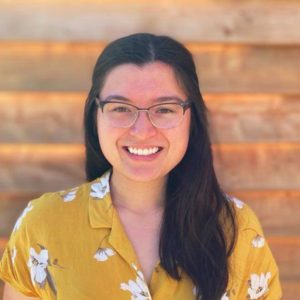
M.A. in Geography and International Development, University of Guelph, Canada (2020)
Hon. BSc. in Psychology and Geography, University of Toronto, Canada (2018)
Kimberly Hill-Tout
PhD Candidate, Geography & Planning
13knht@queensu.ca
Research Interests
I am interested in researching community-led initiatives that build community resilience in a time of the Climate Crisis. I am particularly interested in how communities are utilizing alimentary responses to build community resilience. Within these responses, I focus on community gardens, youth programing, cooking classes, homestead farming/ skills, and how cookbooks play a role in connecting people to tradition and ‘slow life’ resilience skills. I draw on feminist, anti-oppressive, and community-engaged scholarship to conduct research. In my recent publications, I reflect on the COVID-19 pandemic responses and how communities have been responding to health measures socially on the individual and community level; and ask who is excluded from economic relief? Who is driving social change? What will this mean for areas of political focus? Next, I will examine how First Nation communities in Ontario have built community resilience in the face of adversity, and how the practices should translate to broader learning workshops.
Biography
I was born and raised in Kingston, Ontario, and I identify as a descendant from Southeast Asian and English-Canadian geographies. My mother was a refugee from Vietnam to the USA, and my father was Canadian with family history dating back to the first early colonialists in Canada and the USA.
I have spent my undergraduate and Master’s career working in international development, which had me travelling across the globe to examine and facilitate development ‘learning’ and evaluation. I was particularly interested in aspects of food and agriculture in relation to international development, but have since turned my attention to Canadian food justice and community resilience.
In my spare time I really enjoy cooking, reading, knitting, camping, and watching The Simpsons and Brooklyn-Nine-Nine. I’ve recently started farm work which has furthered my interest and knowledge about food systems. I aspire to one day combine community-engaged scholarship with a farm research lab, and policy advising.
Recipient: Doctoral SSHRC, 2021-2025
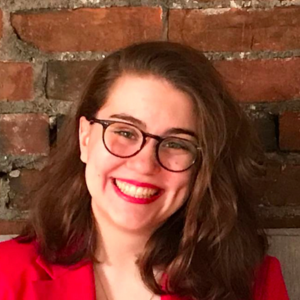
Bachelor of Global Business and Digital Arts (University of Waterloo)
Kiera McMaster
Masters Student, Geography & Planning
kiera.mcmaster@queensu.ca
What I do
For my Masters, I am researching the creation of virtual food communities during COVID-19, and the capacity for these communities to improve food security by increasing food literacy. Through the Cooking with Grammas and Cooking with Chaplains programming at Queen’s, I am looking to understand how this programming can improve mental, physical, and spiritual wellbeing; aid in building confidence in the kitchen to improve food skills; and teach us lessons about virtual cultural pedagogy.
Recipient: SSHRC, CGS-M, 2021-2022
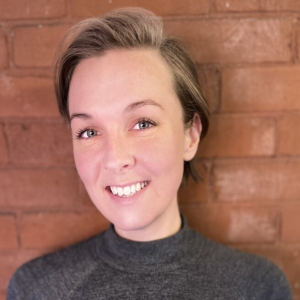
PhD in Geography and International Development Studies (University of Guelph)
MA in Geography (University of Guelph)
BA (Hons) Environmental Studies (Carleton University)
Josie Wittmer
PostDoctoral Fellow & Adjunct Assistant Professor, Geography & Planning
josie.wittmer@queensu.ca
What I do
My research explores processes of urbanization and urban change in relation to neoliberal and capitalist rationalities, governance mechanisms, and visions of urban spaces and futures. Much of my work looks to the everyday and embodied experiences of urban dwellers who are marginalized by urban development projects and visions and are disadvantaged by local power configurations of gender, class, race, and caste. I frequently use waste and waste labour as a lens through which to engage with the various socio-ecological and political-economic processes, contestations, and contingencies involved in the ‘management’ of urban waste/cleanliness, struggles for access to urban space and dignified livelihoods, and the pursuit of urban citizenship and justice in the city.
My current research engages with self-employed women waste recyclers in Ahmedabad, India to investigate the ‘Smart City’ urban development projects which have been ramped up during the Covid-19 crisis.
How I Work
My work is situated at the intersection of feminist geographies, post-colonial/decolonial theory, urban political ecology, and political economy. My research methods include: ethnography, interviews, focus groups, participant observation, surveys, and storytelling.
Biography
I grew up in small-town, southern Ontario (Uxbridge, traditional territory of the Mississauga and Chippewa peoples) and currently live in Smiths Falls, ON (traditional territory of the Anishinaabe, Huron-Wendat, and Haudenosaunee peoples), where my partner and I own and operate a small-batch artisanal coffee roaster! When I’m not doing research, teaching or sampling fresh coffees (a very important job), you can find me spending time with our dog and two cats, baking/eating the baking, sewing garments and quilts (with increasing success), enjoying the outdoors, tending to a million houseplants, and playing/watching basketball.
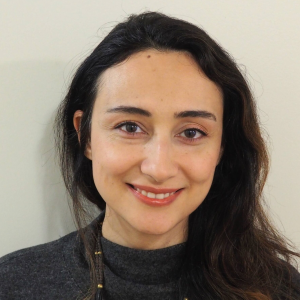
PhD in Geography (University of Waterloo)
MSc City Design and Social Science (London School of Economics and Political Science)
BSc (Honours) City and Regional Planning, double major in Sociology (Middle East Technical University-METU)
E. Alkim Karaagac
Postdoctoral Fellow (Queen’s University)
Adjunct Assistant Professor, Geography (University of Waterloo)
e.karaagac@queensu.ca
What I do
I’m a feminist economic geographer, interested in urban inequalities, debt geographies, housing financialization and crises of social reproduction in contemporary Turkey and Canada. In my doctoral research I examined the role of the Turkish state in financializing “social” housing and the role of indebtedness to the state on the conduct of citizens. Through institutional ethnography, I investigated everyday negotiations of finance and debts in state-led mass housing projects in Istanbul. I currently run a SSHRC-funded research at Waterloo, titled: Making a Home in Off-Campus Housing: Bringing visibility to international student families through narratives of homespace. In my post-doctoral research, I study international student indebtedness, examining the role of private lending practices in Canada’s international higher education system, focusing on the socio-economic impacts of predatory lending on student experiences in university towns. I use both qualitative and quantitative methods including ethnography, interviews, focus group, participant observation, archival research, mapping and surveys. I often combine ethnographic research with critical policy analysis to examine how policy plays on the ground. My work converses with feminist political economy, critical urban theory, and social reproduction theory.
Biography
I am a Middle Eastern woman of Kurdish and Yuruk descent–born and raised in a rural town in southern Anatolia. I left home for education by the age of 11 and since then I have been an educational nomad. During my undergrad years at METU, I engaged in anti-capitalist organized movement and collective theatre practice, which shaped my critical feminist stance against neoliberal-authoritarian regimes and their oppressive practices in Turkey and elsewhere. I came to Canada in 2017 as an international student and since then I have been living in Waterloo Ontario (the traditional territory of the Attawandaron, Anishinaabeg, and Haudenosaunee peoples). Apart from my work at the university, my life’s work involves parenting, caregiving, and gardening. I like sci-fi and fantasy books, vintage records, and train rides.
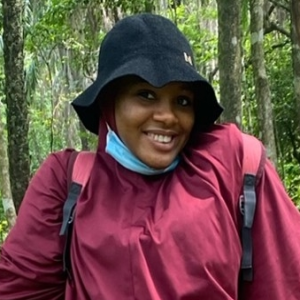
Masters of Philosophy, Soochow University( PRC)
Bachelors of Arts in Chinese Studies, University of Lagos
Maryam Abisola Owodunni
PhD Student, Geography & Planning
maryam.owodunni@mail.utoronto.ca
Research Interests
My research is driven by the right to the city, how and why these rights translate differently from person to person, how relations are formed in the urban and how people negotiate their ways into the urban life especially at the ever-rising influence of neoliberalism. I am generally interested in urban development, urban transformation, urban problems, community building and everyday lives in the urban especially in the global South.
I have growing interest in colonialism, settler colonialism and their ongoing roles and effects in present day. My prior research had been on spatial justice in contemporary urban development using the case study of Lagos, Nigeria. My current work seeks to explore human migration, diaspora groups, how these groups relate to space in the urban and how their bodies influence these relationships
Biography
I am an international student from Lagos, Nigeria who is deeply interested in language, culture, and human relationships. I currently speak Yoruba, English, and Mandarin Chinese at advanced level, French and Arabic at lower intermediate level. I enjoy cooking, traveling, language learning and adventures.
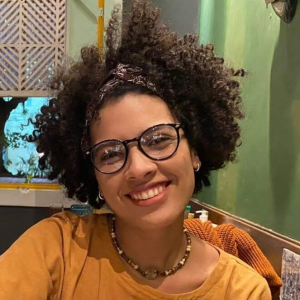
PhD, Geography, Queens’s University (current)
MA, Urban and Regional Planning, Federal University of Rio de Janeiro (UFRJ)
BA, Public Management for Economic and Social Development, Federal University of Rio de Janeiro (UFRJ)
Monique Carneiro Assunção
PhD Student, Geography & Planning
monique.assuno@queensu.ca
Research Interests
I am a public manager, urban planner, and feminist geographer interested in emancipatory infrastructures in Brazil. My research is focused on processes of marketization and privatization of infrastructure in Brazil, mainly water services. Through a feminist political economy lens, I aim to understand the Brazilian State’s relationship with international investment funds in creating new water markets in the country, and how these privatized markets affect people’s everyday lives, especially in regions where water is scarce.
I am also interested in abolition geographies, governance in the Global South, black studies, social infrastructure, social justice, and wastewater surveillance.
Biography
I am a black Brazilian woman who has the pleasure of calling Rio de Janeiro my home. I was born and raised in Rio, and still am deeply in love with this chaotic and beautiful city. I like to hike, go to the beach, play with my godchildren, go to indie music festivals, read fantasy books and watch Parks and Recreation.

